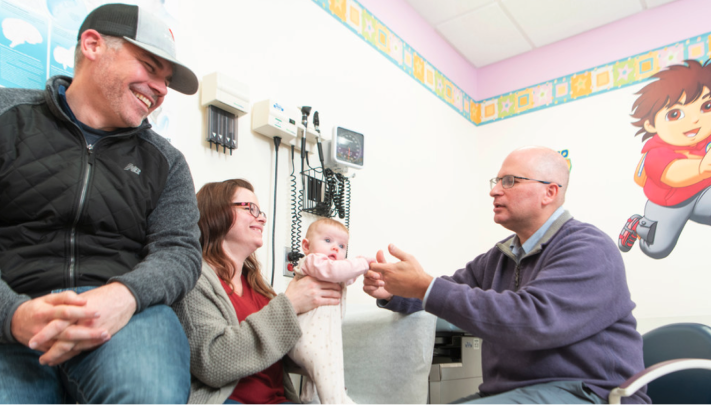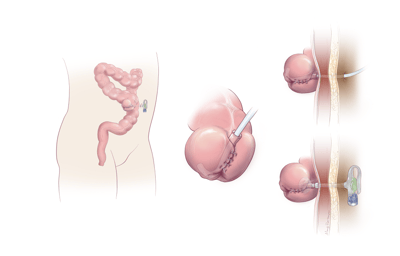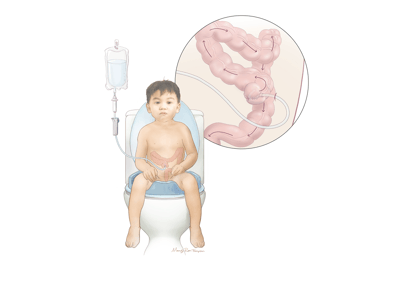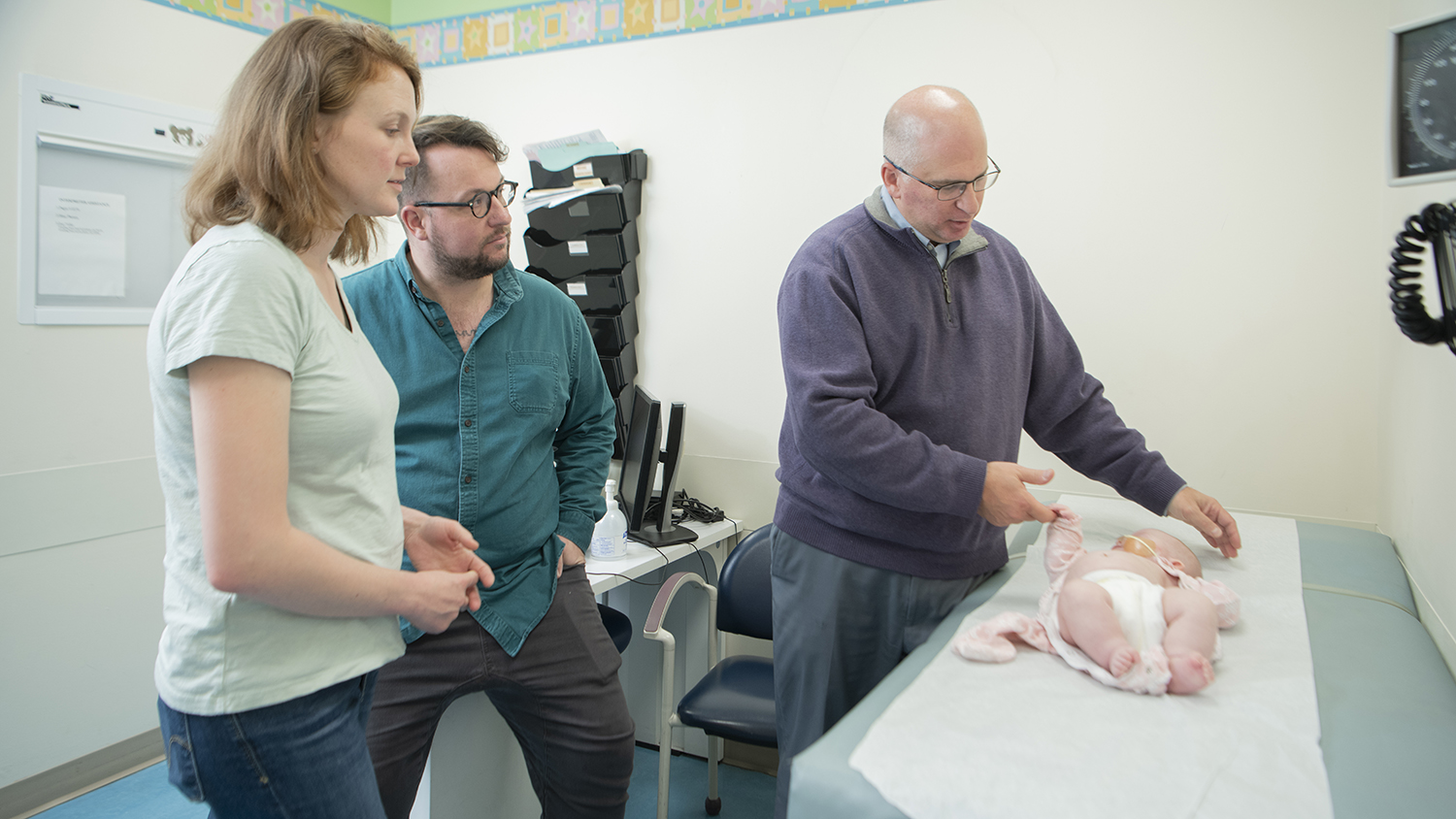Condition
Fecal and Urinary Incontinence Related to the Spine
What You Need to Know
Fecal and urinary incontinence is common in children with certain congenital spine-related diseases.
Key Points
Fecal and urinary incontinence is common in children with certain congenital spine-related diseases. These conditions can interfere with bowel and urologic function. Affected children have normal bowel and urologic structures.
Causes and Symptoms
Children with these conditions cannot control their bowels or urine due to:
- Damage or poor development of nerves necessary for these functions
- Neurological issues disrupting messages from the brain to the bowel
This disruption can lead to motility problems and an inability to sense the urge to use the bathroom.
Treatment and Care
Treatment may include:
- Medication
- Bowel training
- Surgery
Children with spinal cord conditions should be monitored for incontinence symptoms regularly.
Understanding Fecal and Urinary Incontinence Related to the Spine
Fecal and urinary incontinence are common issues seen in children with certain congenital spine disorders such as spina bifida, spinal cord injury, or tethered spinal cord syndrome. These conditions can result in disruption of nerve signals between the bowel and brain, leading to motility problems and an inability to control bowel movements or urine.
Recognizing the Symptoms of Fecal and Urinary Incontinence Related to the Spine
Symptoms may vary depending on the severity of the condition. Common symptoms include:
- Constipation
- Encopresis, also known as soiling
- Overflow incontinence (when urine comes out involuntarily)
- Neurogenic bladder, a condition that leads to frequent urination, retention, urgency to reach the bathroom, and urinary accidents at night
Although these symptoms may be uncomfortable and embarrassing for children, it's essential to discuss them with a pediatric specialist. Early diagnosis and treatment can help prevent long-term complications.
Causes and Risk Factors for Pediatric Incontinence
Several factors can contribute to fecal and urinary incontinence related to the spine, including:
- Spina bifida or other congenital spinal disorders
- Absent sacrum
- Spinal cord injury
- Sacrococcygeal teratoma
- Tethered spinal cord syndrome
- Previous surgeries or procedures on the spine
Children with these conditions should be monitored for incontinence symptoms regularly to ensure prompt treatment and prevent long-term complications.
Spina Bifida
Absent Sacrum
Sacrococcygeal Teratoma
Diagnosis of Fecal and Urinary Incontinence Related to the Spine
A thorough medical history and physical examination will typically be performed first to evaluate any underlying conditions or injuries that may be contributing to the incontinence. Additional tests, such as X-rays or MRI scans, may also be ordered to assess the spine and surrounding structures.
We offer the latest advanced diagnostic tests and tools to evaluate children who experience encopresis (soiling) as a result of spina bifida, myelomeningocele or other spinal disorders. These disorders are often diagnosed in the fetus.
These diagnostic tests include:
- Abdominal ultrasounds to examine the kidneys, bladder and pelvic organs
- Spinal ultrasounds to evaluate for spine abnormalities or other neurological problems
- X-rays to examine the spine and sacrum
In addition to these tests, specialized motility studies, such as anorectal manometry and colonic transit time studies, may be conducted to evaluate the function of the bowel. These tests can help identify any issues with nerve communication between the brain and bowels.
Early Diagnosis Support
Learn how our Prenatal Pediatrics Institute can provide an early diagnosis for faster treatment.
Treating Fecal and Urinary Incontinence Related to the Spine in Children
Non-Surgical Treatments
Medical treatments and surgery can often help restore some function of the bowel, but gaining full bowel control may not happen so quickly. For these children, fecal and urinary incontinence can cause anxiety, distress, embarrassment, and social problems. However, there are effective treatments for fecal and urinary incontinence for children with spine disorders. Our pediatric colorectal and urologic specialists collaborate to create individualized and effective treatment plans to ensure your child gains optimal bowel and urinary control and function. Through a comprehensive treatment plan, children can avoid or greatly decrease incidents of soiling and urinary accidents to achieve a better quality of life.
If your child has bowel incontinence due to spina bifida, myelomeningocele, or another congenital birth defect that affects the spine, their treatment plan will likely consist of a combination of different approaches. This may include changes in diet, lifestyle, medications, surgery and participating in a bowel management program.
Our Bowel Management Program implements a customized set of treatments to help your child stay clean and free from accidents. Your child benefits from working with nutritionists who create optimal diet plans and offer helpful tips for increasing fiber intake for parents of picky eaters. A nurse practitioner and child psychologist oversee treatment plans and adjust as needed.
Other non-surgical treatments include:
- Enemas and bowel irrigation treatments to loosen stool and flush out waste
- Medications such as laxatives
- A healthy fiber-rich diet
Surgical Treatments
Malone Appendicostomy
Colon Resection
Recovery and At-Home Care
How to Care for Your Child's Malone Site After Surgery
This video reviews every day care measures for your child's MiniAce device. The goal of this video is to educate you on how to keep the Malone site clean and keep your child from getting an infection. Before performing any of the instructed steps in the video, always check with our team or your child's pediatrician for safety.

How to Perform a Rectal Enema on Your Child
Learn the right way to administer an enema. An enema will clean your child’s colon of stool. We want this to be a good experience for you and your family.

Make an Appointment
If you suspect your child is experiencing fecal or urinary incontinence related to a spinal disorder, it's essential to seek medical help. Our team can schedule your child’s appointment and provide compassionate, expert care.
Meet Our Team
Our providers are specifically trained to care for the needs of children with fecal or urinary incontinence related to a spinal disorder, providing expert care when your child needs it most. Get to know our team.
Departments that Treat Fecal and Urinary Incontinence Related to the Spine

Pediatric Colorectal & Pelvic Reconstruction
The Division of Pediatric Colorectal & Pelvic Reconstruction offers the latest advancements in diagnosis and treatment for all types of pediatric colorectal disorders. Learn more about our division.

Help Kids and Make a Difference
Invest in future cures for some of life's most devastating diseases. Give today to help more children grow up stronger.





 A
A 
